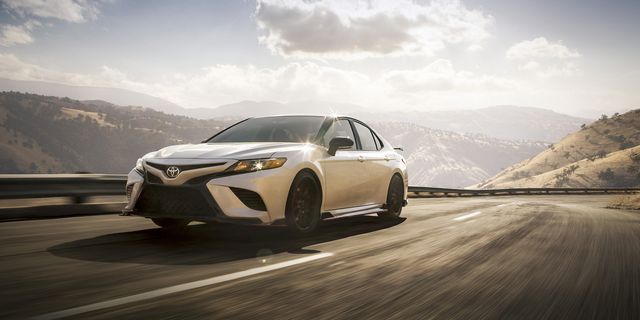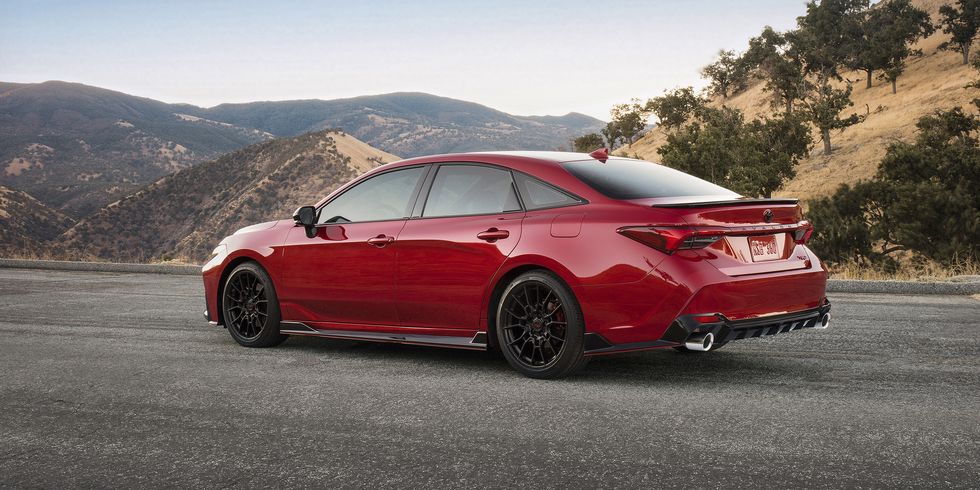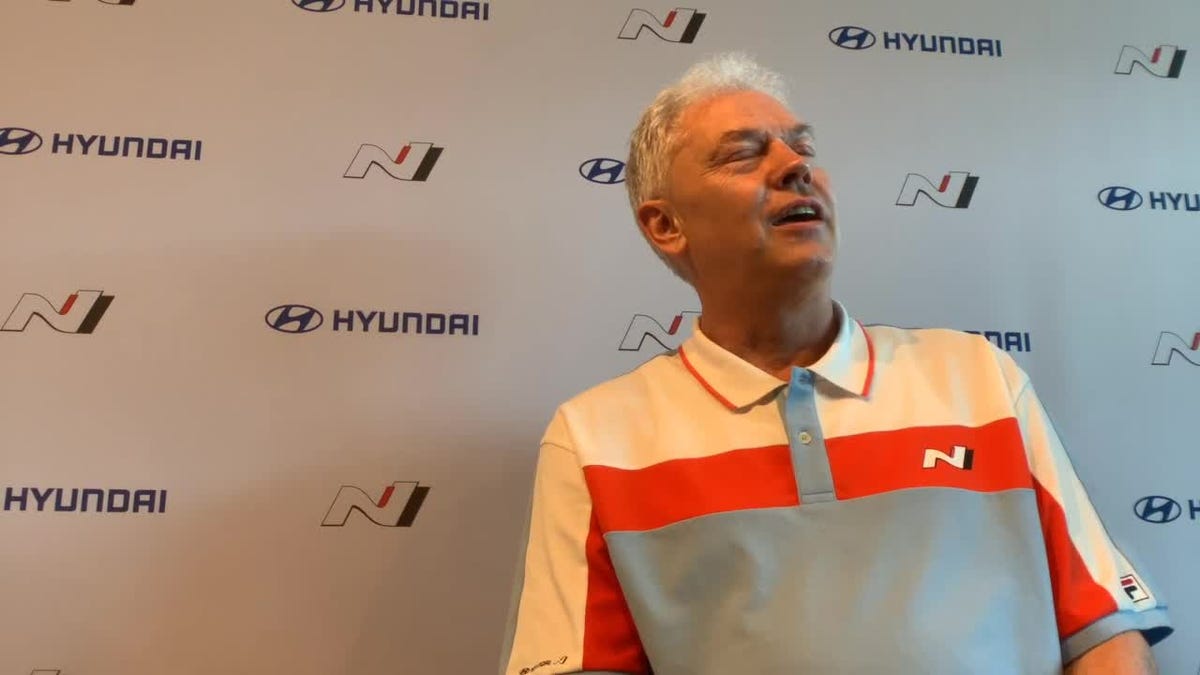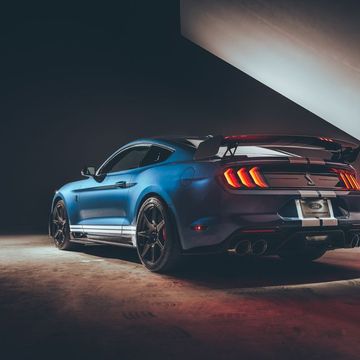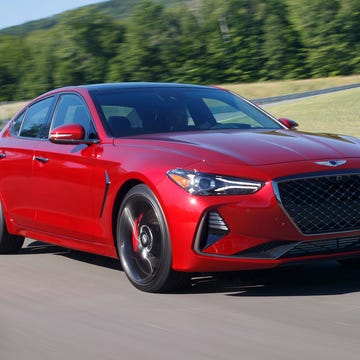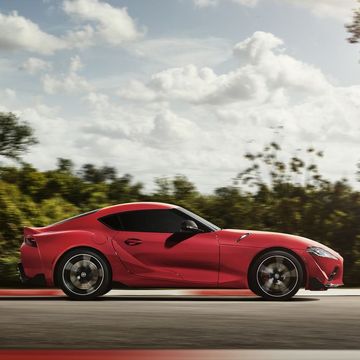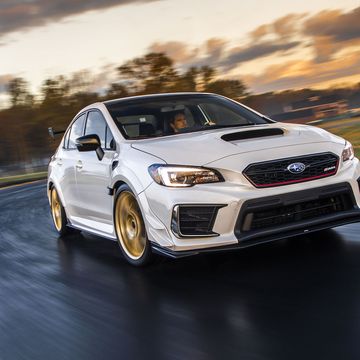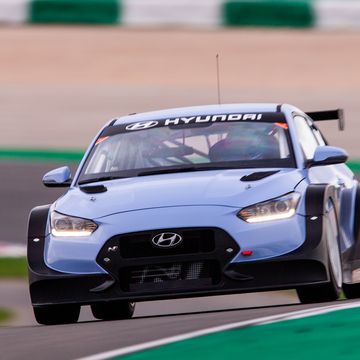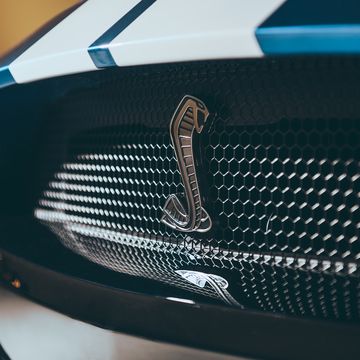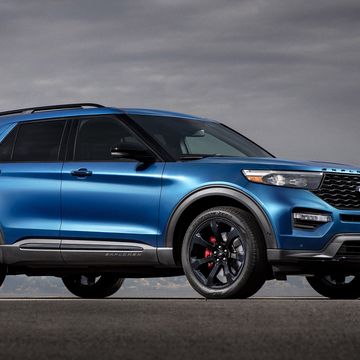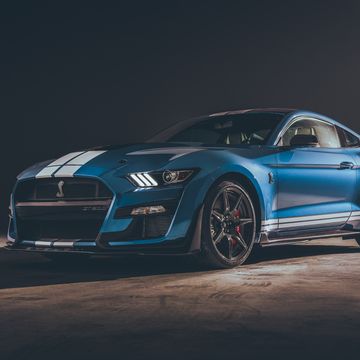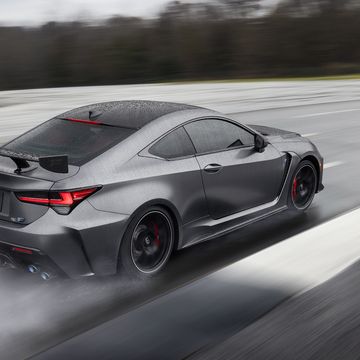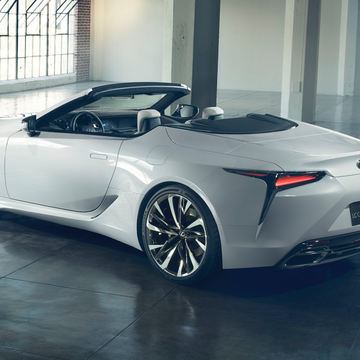Ford raised a lot of eyebrows last spring when it announced that it will discontinue the Fiesta, Focus, Fusion and Taurus for North America, leaving a lineup consisting entirely of crossovers, SUVs and trucks—and the Mustang. To a lesser extent, GM is doing the same thing, with its planned discontinuation of various Chevy, Buick and Cadillac sedans.
Toyota won't be following suit.
Shown above: The 2020 Toyota Camry TRD
At the 2019 North American International Auto Show in Detroit, we spoke with the head of the Toyota brand in North America, Jack Hollis. He told us why he thinks sedans are still important.
"Even in this marketplace that's nearing 70-30, with 30 percent being cars, that's still 30 percent of a really large industry," Hollis said. "Even if it gets lower, if our forecast lowers, it's still going to be about five million [customers]."
Hollis quipped that he'd love to capture all five million potential customers "in a heartbeat," but conquering just a small portion of that market would be a massive victory, even for a giant like Toyota. And among those five million people, Toyota is trying to target car enthusiasts in particular.
"As the industry continues to move from car to trucks and SUVs, it loses some of that fun-to-drive feel," Hollis said. "You're not going to get the same handling in a mid-size SUV that you're going to get in a sports car or a performance car. And what we're finding is that there's a lot of people who still really want that, and they don't have as many options.
"You're seeing a lot of the industry going away from those fun-to-drive options. We're kind of going the other way with it," he said.
That's why Toyota has added some more driving excitement to the newest Corolla, Camry and Avalon, including TRD versions of the latter two. Hollis says a TRD Corolla is likely, too, though it's not currently in the works. It's also why Toyota is newly committed to sports cars, even if they're a relatively low-volume proposition. "86? I see that vehicle continuing. Supra? I see that vehicle continuing. They both have a following," Hollis said. "They both add value."
Hollis also commented on the ever-changing nature of automotive taste. "Younger folks, do they ever want to drive what their parents drive? That's why cycles come into place," he said.
The first SUV boom, in Hollis's view, was driven by a generation of new parents that didn't want to own the station wagons of their parents. But, if the cycle continues, SUVs and crossovers could fall out of fashion in favor of vehicle styles that aren't as popular right now. To say nothing of what a future fuel price hike could do to SUV sales.
Of course, Toyota is prepared for any eventuality with a full lineup of cars, SUVs and trucks. That's not surprising from such a massive automaker. But you get the impression that the company wants to have something for everyone—even people like us. It's a welcome change from Toyota's recent years of competent but largely unexciting cars.
A car enthusiast since childhood, Chris Perkins served as Road & Track's engineering nerd and Porsche apologist.
